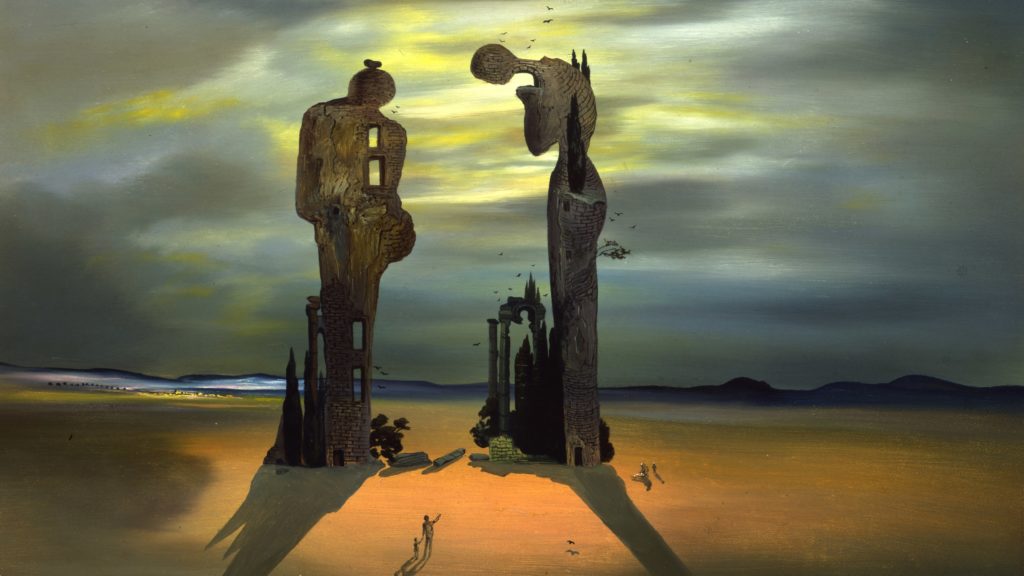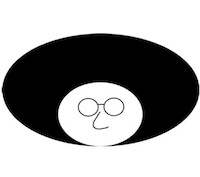
There is an exhaustion in America this year, an exhaustion of spirit borne out of political knife-fighting, out of a pandemic that attacks the weak and old and those trying to care for them. An exhaustion with our fellow citizens and a disappointment in our fellow human beings, an exhaustion from financial worry, and an exhaustion with an existence that seems less and less full of joy than generations past.
America is a machine, a glorious, magnificent, dangerous machine that runs on, more than anything else, self-confidence. That self-confidence is what pushed it to the Pacific, to the Aleutian Islands, and to the Moon. That self-confidence convinced America it belongs in the drivers seat of the world, that The Six Grandfathers should be taken and renamed Mount Rushmore, and that poor villagers in rice paddies and date palm oases would somehow welcome its bombs. The self-confidence was a double-edged sword, and the blade tended to fall on the poor, the brown, the foreign. That self-confidence was beamed from movie theaters, from Radio Free Europe, and from Arpanet to the whole world. America is that machine, massive and powerful, that is now running low on its fuel, and piloted by people who lost the instruction manual. Or maybe there was never an instruction manual in the first place.
We are exhausted because the men and women who held us up, or fought to stop those who were holding us down, are gone. Jane Addams and Dorothy Day are gone. Ralph Waldo Emerson and Henry David Thoreau are forgotten after sophomore year English class. Muddy Waters and Sister Rosetta Tharp are in the discount bin at Best Buy.
Giants once walked the land, they fought Nazis on the beaches of Normandy, they marched on Selma, they burned their bras at Amherst, they rioted at Haymarket. Their footprints are enormous, and we live in them, tiny in comparison.
Xenophon and his 10,000 Greek mercenaries were trapped deep in Asia in 400 BCE, and while trying desperately to get home, they camped in the ruins of a massive city. Bigger than any city Xenophon could ever imagine, he then lamented. The name of the great city was lost to the shepherds who grazed their flocks in its ruins. If a city this great and rich could disappear into history, what hope is there for his adopted city of Sparta? His birth city of Athens? What hope is there for any of them? What hope is there here, in America, for us? Our giants are long gone.
I realize that I do not measure up favorably to the women and men who paved the way for my family and for our children.
My grandfather, who served in the US Army in the Philippines during WW2, was captured, starved, and marched in Bataan. He lived to tell the tale, incompletely and sporadically, to my father. And he lived to survive fires destroying his home and all his possessions twice, to have raised seven children, and to meet me, just after my life began and just before his ended.
My wife’s grandparents left home and family in Pittsburgh and traveled across the country and started a new life in Los Angeles, when California was still an idea, a destination, and a vessel for dreams, and where my father-in-law and his siblings grew up.
Every family has such stories, and we wake up and look at ourselves in the mirror and see faces that look vaguely like theirs, and yet unlike them: I cannot plow. I cannot fight. I do not know how to fix a jeep. I do not have the sense that everything will be alright, that we will all persevere. I do not have the optimism that my children will have a better life than mine.
Still, I sit with my children as they ask me about the world. And they ask my wife about her life. And they ask us what life will be like when they are grown. And, somehow, we have to be their giants. Because our own giants are no longer here to take that role. It is us, it is the teachers in their schools, it is the young people who flood the streets to demand a better, safer, more just world, that will take that role. We are exhausted, but the baton has been handed to us, and so we will have to decide whether to pick it up and run. The only shade our children will sit in will be from trees that we either plant or protect.
America is exhausted, our confidence is shot, our tank is empty. And, Lord help us, we have to refill it. It will have to be refilled by more than just self-confidence, than jingoism, than a belief in our own strength. That is poor fuel, I think, and it runs out quickly, it burns dirty. Our self-confidence, our optimism, will come back when we accept that it has always come from the hopes of those on the outs, the marginalized, the people experiencing poverty, and the foreign. Each time the America embraces its duty to increase justice, it becomes stronger. Each time America confronts its own demons, its slavery, its racism, misogyny, homophobia, xenophobia, its economic inequality, it becomes stronger. The giants of the past moved the needle, but it is nowhere near where it needs to be, as much as we may appreciate the progress they made.
It has been said that “comparison is the thief of joy.” Maybe we can’t go back to the world of our giants, and we can’t go back to the optimism of the 1950s or 1990’s. Maybe it is because we know that that optimism did not touch enough people; maybe it is because we know that the table can be bigger. Maybe we are realizing that the table our forebears set for us was the children’s table, and now, as our hair turns grey and our bones creak and our blood thins, it is time for us to prepare the adult table. Maybe our grandparents were never giants, they were men and women doing their best in an unjust and imperfect world. They became giants when we had to build our homes in the footprints they left behind. We are, wherever we step, leaving the footprints in which our children and grandchildren will grow. Every person we feed, every person we forgive, every punch we throw, every virtue we embrace, every injustice we allow to happen, leaves the frame of the world they will have to live in.
Maybe America does’t need to aim to be strong, or rich, or mighty. Maybe we need to aim to be just. And maybe we will cast a shadow in which people will later sit, and marvel that such Giants once walked the earth.




